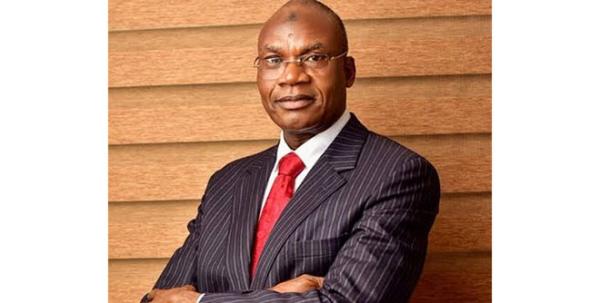
Opinion leaders have kicked against plans by the Federal Government to peg the minimum age for admission into higher institutions at 18.
It would be recalled that the Minister of Education, Prof. Tahir Mamman, recently disclosed that the Federal Government plans to review the minimum entry age for admission into tertiary institutions in the country, and peg it at 18 years.
Also, the National Assembly, through the Chairman, Senate Committee on Tertiary Institutions and TETFund, Sen. Muntari Dandutse, stated that it would come up with a legislation to support 18 years as entry limit for admission into tertiary educational institutions.
Julius Adegunna, a media executive, who spoke on the issue, maintained that such a plan is simply unprogressive.
Adegunna, who was responding to Sunday Independent enquiries on the issue, asked: “What has age got to do with academics in our modern days? It simply shows how clueless many of the government officials and legislators are.
“With your phones, one can get many things known and done. This may also cause some young Nigerians to leave the country to study where there are no barriers.
“This policy, if implemented, will provide more reasons for depletion of the nation’s foreign exchange reserves as more parents whose children finished secondary schools will be forced to send them to countries where such discriminating policy does not exist.
“There could be age limits, but 18 years is on a very high side. Something like 15 or 16 years may be preferred.”
Also, Utase Joseph Utase, an education consultant, stated: “There are better issues that require urgent legislation and execution in the nation other than the admission age for students and candidates seeking admission into tertiary institutions in Nigeria.
“Why should the government create more bottlenecks on the already complicated and tedious admission process?
“Some children are gifted and talented. Why should such a child not be allowed to graduate early due to the age barrier?
“Let the executive and the legislature come out with policies against banditry, insecurity, immunity of elected officials as well as wasteful government spending.”
Bishop Herbert Ekechukwu, a Church Overseer and economist, stated: “I am not in support of pegging the age of admission into universities to 18.
“Please, God help us! When will this hypocrisy in policy and administration come to an end? People will wake up one morning with bogus plans without critically looking at the pros and cons and want to hoist ill-considered policies on Nigerians.
“Let us look at this issue critically. Majority of Nigerian children finish primary school at 10 and secondary school at 15. Then you want them to waste three years at home before entering universities.
“These are the consequences. The policy will work against the Nigerian youth. It will frustrate and waste the lives of brilliant youth.
“An idle mind is the devil’s workshop. While the youth wait for three years before seeking admission, their attention will be diverted to crimes and waywardness. The policy will be counter-productive.
“One may agree that offering admission to too young candidates is part of the problems in the universities.
“Secondly, we may have immature baby graduates too young to manage life. I believe 16 years is adequate as the minimum age of admission into universities.”
Dr Kalu Ofon Emmanuel, chairman of an international human rights organisation, stated: “This is my personal view on the recent disclosure by the executive and the legislature that are planning to come out with a law approving 18 years as the minimum age for admission into universities.
“I don’t know the rationale behind such a law or policy, which l personally consider inappropriate. It may set us back as a nation.
“Will that policy and law reduce the proliferation of evil, corruption and malpractices prevalent in university campuses? I strongly doubt the possibility.
“There are people who are 16 who have good home upbringing and are more disciplined than some 18 years old who cause nuisance and crises in the society.
“The executive and legislature should concentrate and concern themselves on good parenting, which will reflect on the society.
“I bet you, whatever the Federal Government’s motive may be, if the monitoring and implementation team are not set up, the new policy will be useless.”
However, Barrister Titilope Anifowoshe, a Kwara-based lawyer and strategist, stated that the proposal to set 18 years as the minimum age for admission into universities has both positive and negative implications.
She said: “On one hand, it may restrict the advancement of children who are academically ready, but fall below the age limit set by the National Policy on Education (NPE).
“Instead of focusing solely on age, we should prioritise improving the quality of education, discipline, and extracurricular experiences to ensure that undergraduates are well prepared for the challenges of university life.
“On the other hand, setting an age limit may help address issues of juvenile delinquency in tertiary institutions by ensuring that students are more mature and capable of handling the responsibilities that come with university life.
“However, it raises questions about the fate of students who exceed the age limit, but are still academically qualified for admission.
“To address these concerns, the government could implement programmes like the Centre for Leadership and Citizenship Training to equip young adults with leadership skills and patriotism.
“Collaborating with agencies like the Nigerian Directorate of Employment (NDE) and the National Information Technology Development Agency to provide vocational and technological training can empower youth and contribute to Nigeria’s development.
“Ultimately, the goal of education should be to empower individuals to lead meaningful lives and contribute positively to society’s development.”
Comrade Aluh Moses Odeh, a Middle Belt youth leader and activist, stated: “There is nothing wrong with the plan by the Federal Government to approve 18 years as the minimum age to gain admission into universities.
“Such a policy, if implemented, will drastically reduce the abuse of our education by private schools and the pressure by some parents and guardians that want their children and wards to graduate at below 20.
“It is contradictory to say that 18 is the mature age to marry and be given out in marriage, also to vote and be voted for, and then refuse to implement the same in our educational system.
“Experience has shown that our universities produce graduates that are learned, but not educated. I say so because education is beyond going to school to learn how to read and write, get degrees and do Masters degrees, etc.
“Education is more than that. You can be learned and not educated. To be literate means that you are learned, you have all the knowledge and can pass any examination, but not educated.
“Education has to do with character. Mahatma Gandhi opined that ‘An educated person without character is not only useless, but positively dangerous to the society’.
“There are many learned people with the highest degrees in different fields, but they are not educated because their characters do not qualify them as educated men and women.
“Prof. Ishaq Oloyede, the JAMB Registrar, disclosed during his tour of the CBT Centres in Kaduna State that in the ongoing UTME, a father was caught impersonating his son by writing the exam for his ward.
“Although he did not disclose the names of the father and the location where this happened, one will ask what this man will tell his son about examination malpractice now that both are cooling off in the police net.
“According to the National Bureau of Statistics (NBS), Nigerian universities have continued to churn out over 200,000 graduates every year.
“If you take your time to critically view this number of graduates, as reported by NBS, you may discover that at least 30 percent of those graduates are below 20.
“You know, maturity for a male child begins at 25, while a female matures far earlier, around 10 years. Now, below this age, he has graduated from the university without character formation.
“So, I support the Federal Government in this decision. If a child graduates from secondary school below 18, he or she should acquire entrepreneurship skills that will help him or her in the university to reduce pressure on parents.”






















